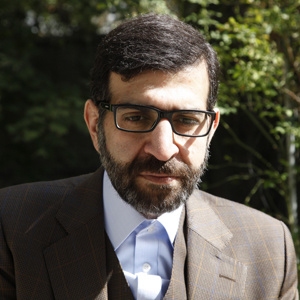After the Fourth Round of Sanctions

Another round of UN sanctions against Iran’s nuclear program was imposed on June 9, 2010, targeting the military and financial affairs of the Islamic Republic (see UN report here.)
Despite all the fuss about the ‘strength’ of the new punitive measures, the Western media knew –and warned their governments matter-of-factly- that the new sanctions could not stop Iran from following its nuclear agenda. Indeed, there have been several American political observers with the courage to say that the United States should acknowledge a nuclear Iran and engage with it in negotiations. Perhaps it was in response to those analysts that Robert Gates, the U.S. Secretary of Defense, was quoted as saying “that they will undermine their security by pursuit of nuclear weapons, not enhance it. For one thing, their obtaining a nuclear weapon would almost certainly lead to proliferation of nuclear weapons elsewhere in the Middle East and a number of other countries.”
Immediately after the release of the Tehran fuel-swap agreement, Washington tried to counter its impact by announcing that permanent members of the UN Security Council were ready to propose a new round of sanctions.
The Obama administration did not waste any time after the nuclear proceedings in Tehran, intensively lobbying non-permanent UNSC members—including signatories to the Tehran Declaration, Brazil and Turkey—to try to convince them to not oppose new sanctions. The U.S. is said to have requested that Brasilia and Ankara abstain rather than vote against the resolution.
As the United States had announced in advance, a number of countries (including the United States itself), will set additional, supposedly more powerful sanctions to complement the ones approved by the UN. A dual-track approach—sanctions side by side with negotiations—has been promoted by the Americans since the start of Barack Obama’s presidency. Iran, nevertheless, grimaces at the approach, and as it has announced, the new sanctions will jeopardize the possibility of further negotiations to break the nuclear impasse.
From the beginning of talks over a new round of sanctions, it was obvious that Washington could not persuade other members to approve stringent sanctions –such as the one favored by the U.S. Congress, namely an embargo on petroleum exports and imports. The United States had better soon understand that sanctions will not undermine Iran’s determination to continue its nuclear program. A fresh round of sanctions could just benefit the Americans in two ways: proving a global ‘consensus’ against Iran’s peaceful nuclear program—which failed, however, as Lebanon, Turkey and Brazil did not cast affirmative votes—and keeping the heat on Iran’s nuclear activities, so as not to miss any future chances for increasing pressure on Tehran. The politicians in Tel Aviv are also well aware that only continued ballyhooing over Iran’s nuclear program will divert public attention from the fact that Israel is the only Middle East state that actually possesses nuclear warheads.
Iran’s response to the new sanctions has been cool-headed. Announcing the Tehran Declaration as null and void was a correct move since the primary goal of the declaration was to forestall fresh sanctions. Nonetheless, an isolationist attitude will not prove fruitful. We must maintain a pro-negotiation stance, albeit with all parties concerned and not merely the members of the Non-Alignment Movement (NAM) or non-permanent UNSC members. Reducing tensions with Moscow is the next necessary step. Inside Iran, no one denies the fact that the Russians have never been reliable partners. This should not, however, allow us to forget another important fact: that Russia is our neighbor and a powerful UNSC member. Bearing in mind that China also got on board with the West, then why has Russia become the only target of our direct attacks?

